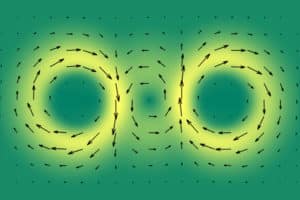
Unlocking spin currents in Density Functional Theory
Cnr Nano researchers enable integration of spin currents into applications of Density Functional Theory, opening doors to more accurate simulations and possible spintronics developments.
News

Unlocking spin currents in Density Functional Theory
Cnr Nano researchers enable integration of spin currents into applications of Density Functional Theory, opening doors to more accurate simulations and possible spintronics developments.
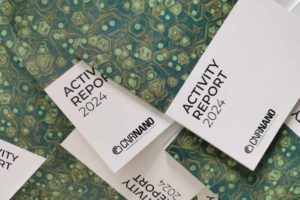
Introducing Cnr Nano seventh Activity Report
We are pleased to launch the seventh biennial report of Cnr Nano, offering a comprehensive overview of the institute’s achievements and advancements from the years 2022-2023

The European Union and Japan are joining forces to develop and fortify their High Performance Computing ecosystems, and Cnr Nano is proudly partnering this collaboration in materials science
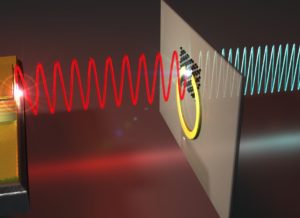
Unlocking Far-Infrared with the first compact 9 THz source
Researchers developed the first miniaturized and efficient technology for producing waves in the far-infrared range. The result fills a technological gap and opens up applications in diagnostic imaging and environmental monitoring. The study is published in Nature Communications.
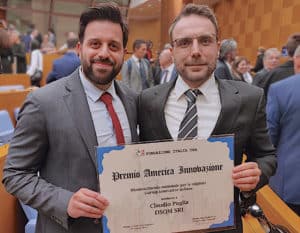
CnrNano startup DSQM wins Premio America Innovazione
DSQM, a spin-off rooted in Cnr Nano research, won the Italia USA Foundation award dedicated to the best Italian innovators, for its cutting-edge technology based on superconducting materials, demonstrating the innovative value of frontier research.
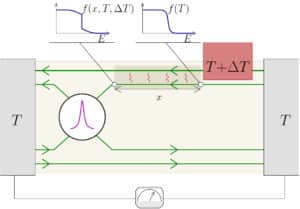
Exploring heat exchange in interacting quantum systems
Cnr Nano research investigates thermal equilibration in one-dimensional interacting systems, revealing universal behavior. Findings are published in Physical Review Research journal.
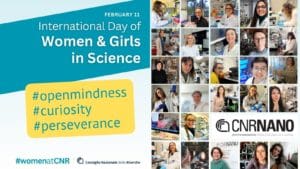
Empowering voices on International Day of Women and Girls in Science
On 11 February, the social campaign #womenatCNR relaunches a choral message of inspiration and encouragement for the women and girls in science of today and tomorrow
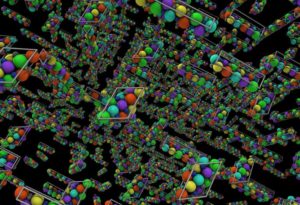
A formula discovers new ceramic materials for extreme environments
Cnr Nano contributed to developing a mathematical formula that allows the discovery of new ceramic materials with potential applications in aerospace and energy industries. The study is published in Nature.
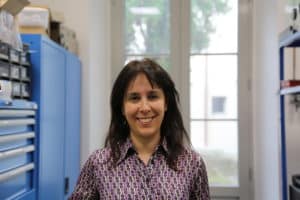
ERC Proof of Concept grant for breaking new ground in Far-Infrared Imaging
Cnr Nano researcher Miriam Vitiello awarded with the prestigious Proof of Concept grant from the European Research Council. Her project, TeraScan, is set to make significant strides in far-infrared imaging technology.
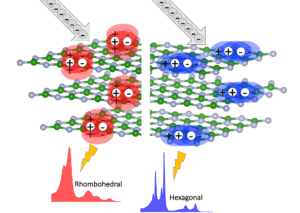
Revealing hidden structures in layered materials using light
Cnr Nano research team has harnessed luminescence spectroscopy techniques to distinguish atomic-scale differences within layered materials. Published in Physical Review Letters, this study bears promising implications in materials design
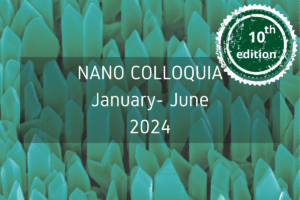
Nano Colloquia 2024: Celebrating a decade of frontier insights
Cnr Nano proudly presents Nano Colloquia 2024, commemorating a decade of pioneering insights and fostering collaborative discussions in nanoscience advancement
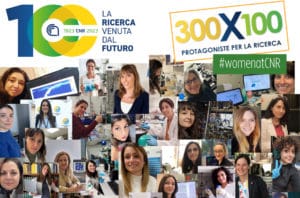
300 female scientists sharing their passion for research
A compelling video showcases the collective project #womenatCNR, aimed at empowering and bringing visibility to the female research community at CNR
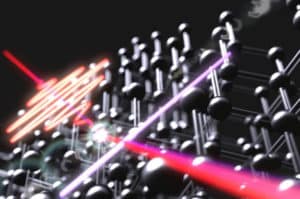
Semiconductor charge injection breakthrough for faster data processing
Collaboration between Politecnico di Milano, CNR, and the University of Salerno sheds light on ultrafast electro-optical switches, marking a milestone in advancing information encoding and data processing speeds, published in Nature Photonics.
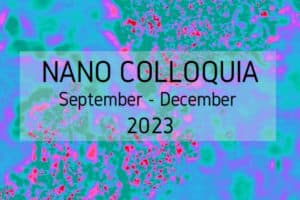
Nano Colloquia 2023 – the second semester series is out!
The Nano Colloquia seminars feature two talks every month by Cnr Nano researchers presenting latest research achievements and discussing new perspectives within our community. Be ready to explore the institute’s most advanced research.
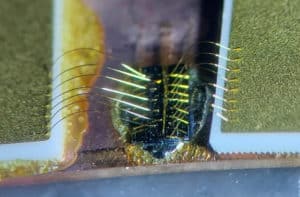
Cnr Nano unveils first homegrown quantum cascade laser
Leveraging cutting-edge equipment and their specialized expertise, Cnr Nano researchers have successfully unveiled their inaugural domestically-produced quantum cascade laser. This achievement places them at the forefront of laser innovation, showcasing notable technological edge.
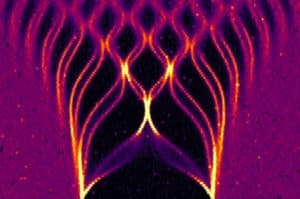
Stepping up with Josephson junctions
Cnr Nano researchers observed half-integer Shapiro steps in highly transmissive InSb nanoflag Josephson junctions. This intriguing finding suggests the presence of new and unexplored phenomena within such devices.
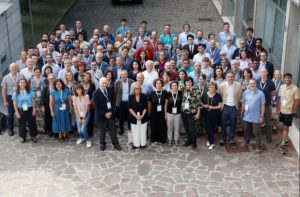
Cnr Nano Modena Celebrates 20 Years
Cnr Nano’s Modena unit recently marked its 20th anniversary with a special gathering that welcomed staff, colleagues, and students.
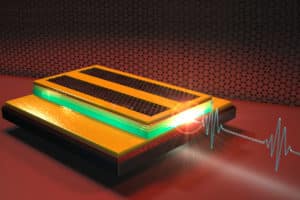
Towards an ultrashort-pulse laser in the Terahertz domain
CnrNano scientists engineered a quantum cascade laser that emits ultra-short pulses of far infrared radiation generated through the so-called passive mode-locking. Such lasers could probe ultrafast dynamics and phenomena across the physical, chemical and biological sciences.
| Cookie | Duration | Description |
|---|---|---|
| cookielawinfo-checkbox-analytics | 11 months | This cookie is set by GDPR Cookie Consent plugin. The cookie is used to store the user consent for the cookies in the category "Analytics". |
| cookielawinfo-checkbox-functional | 11 months | The cookie is set by GDPR cookie consent to record the user consent for the cookies in the category "Functional". |
| cookielawinfo-checkbox-necessary | 11 months | This cookie is set by GDPR Cookie Consent plugin. The cookies is used to store the user consent for the cookies in the category "Necessary". |
| cookielawinfo-checkbox-others | 11 months | This cookie is set by GDPR Cookie Consent plugin. The cookie is used to store the user consent for the cookies in the category "Other. |
| cookielawinfo-checkbox-performance | 11 months | This cookie is set by GDPR Cookie Consent plugin. The cookie is used to store the user consent for the cookies in the category "Performance". |
| viewed_cookie_policy | 11 months | The cookie is set by the GDPR Cookie Consent plugin and is used to store whether or not user has consented to the use of cookies. It does not store any personal data. |